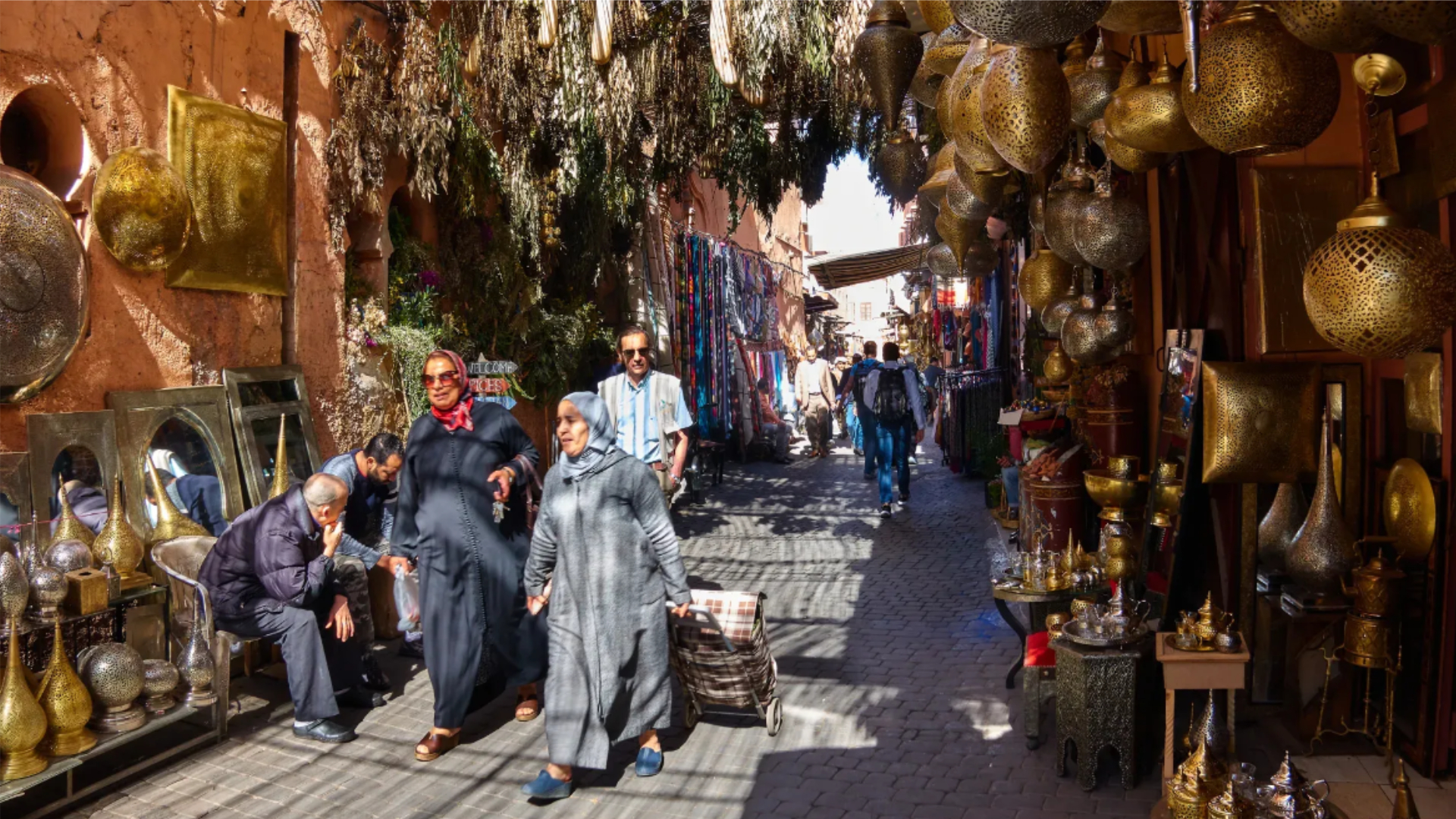Marrakesh is likely to remain a safe and secure place for business travel and operations this year.
This assessment was issued to clients of Dragonfly’s Security Intelligence & Analysis Service (SIAS) on 10 May 2024.
- Marrakesh is usually safe and secure for business travel and operations, in our assessment
- The city authorities appear to have lifted almost all restrictions related to a major earthquake in September last year
- Jihadists are likely to be particularly motivated to carry out attacks in Marrakesh and Morocco more broadly in light of the war in Gaza, but we assess that the overall threat of attacks remains moderate
Marrakesh is likely to remain a safe and secure place for business travel and operations this year. We assess that the main day-to-day security concern for travellers is petty crime, dangerous driving, and moderate terrorism threat. The city also seems to have recovered from a major earthquake in September 2023 that caused operational damage in the Marrakesh region. Protests in the city are generally infrequent, and when they occur these are usually small, peaceful and sector-specific. Pro-Palestine protests have also been rare. Our safety and security risk level for the city is moderate.
Business as usual across most of the city
Almost all major earthquake-related disruptions in the city have now eased. A strong earthquake in the High Atlas Mountains (around 75km from Marrakesh) last year led to collapse of the buildings and damage to power supplies in the walled city and around the marketplace in the city centre. But, within a few months, the authorities had removed most movement restrictions in the city and restored full access to power and water supplies, according to local press reports. That said, some heritage sites in the Medina are still closed for restoration and delays to road travel around the Atlas mountains are very probable due to reconstruction work.
Petty crime likely to remain main concern for travellers
We assess petty crime to be the main day-to-day security concern for travellers to the city. Pickpocketing, and bag and phone snatching are fairly common. This is especially in busy tourist areas such as in the Medina and the main market, according to UK government advice. The UK government also advises people to be vigilant of moped gangs snatching phones and jewellery as well as of ‘aggressive begging’, especially around cash machines. According to a prominent travel blog, pickpocketing can occur at any time, while muggings (with the threat of violence) often happen at night.
Violent crimes against foreigners seem to be rare. Local press reports suggest most violent crimes in the city usually involve locals and are often gang-related or tied to personal disputes. And while there is no official crime data at a city level, the police said in December 2023 that crime rates countrywide had dropped by 10% (to 738,748 cases) last year compared with 2022. This includes a 25% decrease in the numbers of ‘murders, assaults, and deadly injuries’. However, overall crime rates are probably higher as only crimes facing public prosecution are recorded, based on a new system introduced in 2022. Our general crime risk rating for the city is moderate.
Poor road travel safety
Driving in and around Marrakesh is also often dangerous. This is because of poor road quality, bad lighting, and limited police deterrence against reckless driving. Based on our experience of travelling in several Moroccan cities in the past few years, road safety laws are often arbitrarily enforced by the police, particularly at checkpoints on the outskirts of cities. Pre-booked taxis and ride-hailing services are the safest way to travel inside major cities, according to several contacts who travel to Morocco frequently for business. Foreigners who drive are likely to be exposed to bribery and extortion at checkpoints.
Moderate terrorism threat currently elevated
Jihadists remain intent on mounting attacks in Marrakesh. Islamic State (IS) often mentions Morocco in its online messaging and the authorities have disrupted dozens of plots in the past few years. A pro-IS website last week also added Amazigh (Berber) to the list of languages it produces propaganda in. However, jihadists have struggled to execute attacks in the city in recent years; we have recorded no attack there since 2018. This is also probably due to the counter-terrorism capability of the local authorities; they frequently arrest dozens of members of what they describe as IS-linked cells.
We assess there to be currently an elevated threat of attacks against Israeli and Jewish interests in Marrakesh by jihadists and individual extremists. This is due to the ongoing Israel-Hamas conflict. Jihadists across North Africa have been calling for such attacks in recent months. And there have been at least three violent attacks against Jewish people and sites in Egypt and Tunisia recently. There are several prominent Jewish sites in the city, including historic synagogues, that extremists are likely to view as appealing targets. That said, there have been no publicly reported plots or attacks in Morocco since the war in Gaza.
Minimal protest activity
Any protests in Marrakesh are likely to be peaceful and lead to little operational disruption. Demonstrations in the city are usually led by local unions or political parties over issues such as wages or the environment. Such protests tend to be small and peaceful and rarely result in major disruption.
Pro-Palestine protests have also been rare in the city since the start of the conflict in Gaza. And we have not seen any calls for such protests over the coming weeks. In our analysis, the local population seems to have little appetite for major protests following the earthquake last year that disrupted the tourism sector in the city. In a sign of this, pro-Palestine protests have mostly taken place in Casablanca and Rabat in recent months, attracting several hundred protesters.
Image: Local women and tourists are walking through the souvenir shop lane of the souks in Marrakech, Morocco,.on 12 March 2020. Photo by EyesWideOpen/Getty Images




